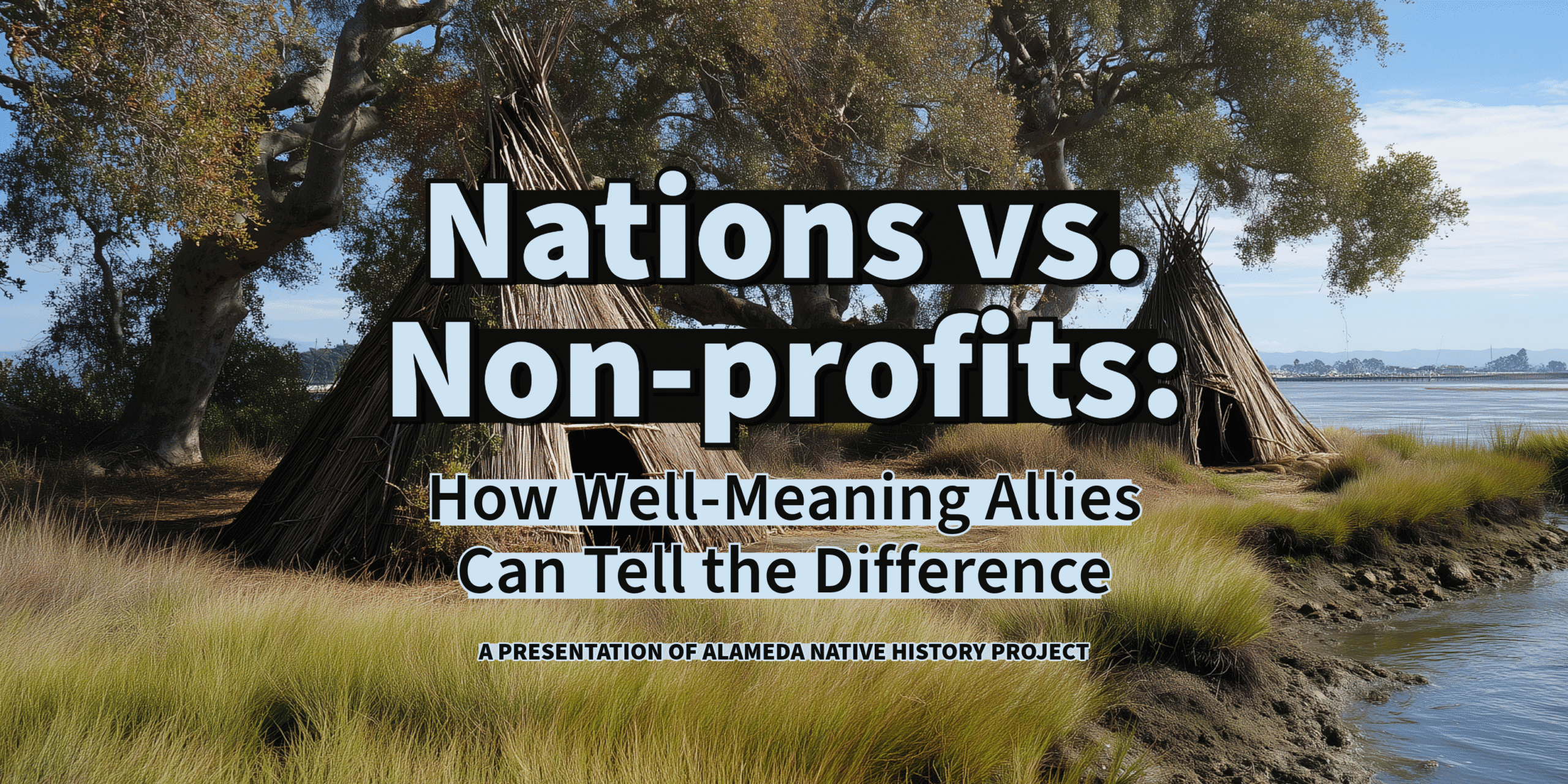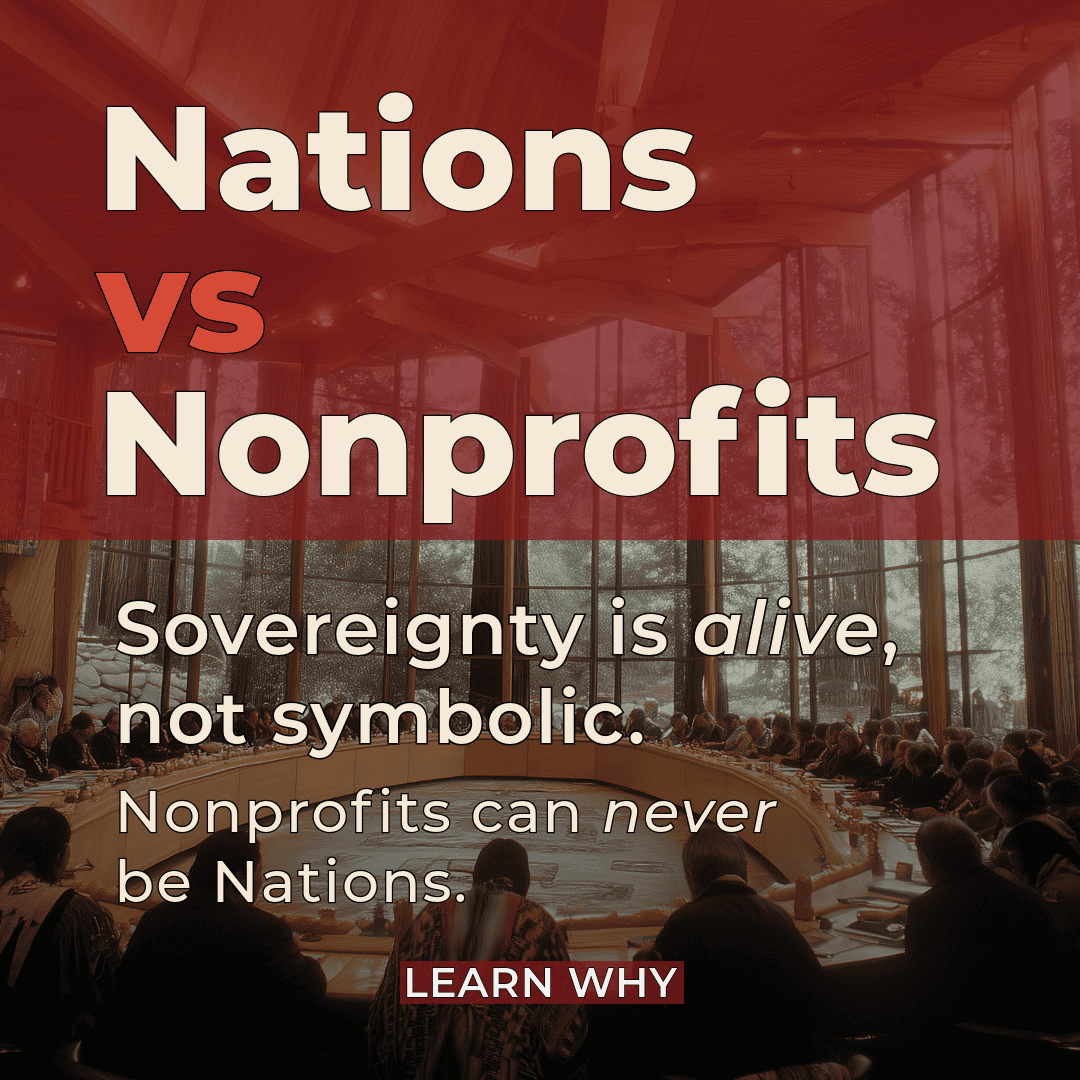A Bold New Lecture Series Designed to Empower Allies
- Learn what real Tribal Nations are
- Find out the difference between Tribal Corporations and Nonprofit Posers
- Get the Ally Toolkit
- See real-world case studies of tribal impersonation (and their downfall)
- Learn how to protect tribal sovereignty by saying “No”
Next session starts soon. Space is limited.
Many well-meaning allies want to stand with Indigenous people but are unsure where their support should go.
Some organizations present themselves as “tribes” when they are actually nonprofits or corporations, and the difference is often unclear to the public. That confusion can misdirect funding, weaken tribal sovereignty, and put your reputation at risk.
This seminar helps you build confidence in telling the difference between Indigenous nations and nonprofits so you can make informed decisions about where to place your energy, trust, and resources.

Nations vs. Nonprofits: How Well-Meaning Allies Can Tell the Difference is a live online presentation that tackles this questions directly.
Together we’ll explore:
- What the word “tribe” really means, including its colonial baggage and its current legal meaning.
- How sovereign Native nations differ from cultural groups, nonprofits, or incorporated organizations.
- Case studies where corporations claimed to be tribes, and what happened when they were exposed.
- Clear red flags and a practical checklist you can use to evaluate organizations that ask for your support.
You will see how to:
- Recognize credible tribal voices before lending your name, platform, or resources
- Ask the right questions when a group claims to be a tribe or “represent the original people”
- Distinguish between lawful tribal governments and organizations that are “borrowing” Indigenous identity for power, access, or funding
Guard Your Good Intentions
Real roots matter. Sovereignty is not self appointed. Real tribal leaders are chosen by their community. This session gives you concrete ways to tell who holds that authority before you lend your support.

Anyone can claim to speak for Native people, but only Tribal Nations have the authority and continuity to do so. These tools help you tell the difference before your support causes harm.
Credibility Protects Everyone
Partnerships built on authenticity strengthen communities, reduce liability, and honor Indigenous sovereignty. The Ally Toolkit and Sample Letters help you verify claims, avoid conflicts, and keep your work aligned with real Tribal Nations.

The Ally Toolkit
Awareness is the first step. The Ally Toolkit turns what you learn into action; helping you vet organizations, protect your resources, and stand in real solidarity with Tribal Nations.
Inside you will find:
- Checklists and red flags for evaluating organizations that call themselves “tribes” or claim to speak for Native people
- Sample declination and referral letters you can adapt to your own policies and procedures
- Questions that help you move conversations out of vague “identity talk” and into clear, verifiable facts
These are practical safeguards designed for real-world use. They can help you identify credible partners, avoid harmful collaborations, and protect your organization from potential conflict or legal risk. Use them to ask better questions, document your decisions, and build policies that support genuine tribal sovereignty.


Stand with Real Nations
Your choices shape the future of sovereignty. Learn how to give responsibly, partner with integrity, and protect the impact of your work.
This is not just another webinar. It is information every ally, funder, and institution should have before they write the next check, extend the next invitation, or put a name on the next land acknowledgment




